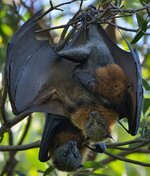I thank you folks for your participation in this thread. The time has come to stop talking about my views on biology and to start applying them. My main field of praxis is myself: my health, my activities, my food and drink. I treat myself according to the following:
- zero sum calculation
- holism
- systems theory
- cybernetics
- self-organization
- self-similarity
- complexity theory


